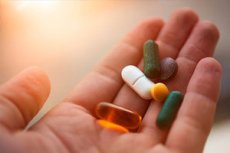
施密德科学技术学院的 Rosalie Hellberg 教授和学生 Kalin Harris、Diane Kim、Miranda Miranda 和 Shevon Jordan 在《分析科学杂志》上发表的最新研究发现,一些补充剂公司可能通过未经证实的健康声明和未列出的成分误导消费者。
研究人员重点关注了那些被认为可以治疗或预防新冠肺炎和其他呼吸系统疾病的补充剂。疫情期间,全球膳食补充剂的使用量急剧增加。
“疫情期间,这类补充剂的购买和使用量急剧增加。每当需求增加,欺诈的可能性就会增加,”施密德科学技术学院的罗莎莉·赫尔伯格教授说。
查普曼大学团队收集了54种含有阿育吠陀草药的补充剂,阿育吠陀草药是一种源自印度的替代医学体系。他们特别挑选了一些据称可用于治疗新冠肺炎的草药,包括南非醉茄、肉桂、生姜、姜黄、圣罗勒、瓦恰、余甘子、古杜奇和蒺藜。所有产品均从网上以及加州奥兰治县和洛杉矶县的当地零售商处购买。
研究人员分析了能否利用DNA条形码技术识别补充剂中的植物种类,从而确定产品的真实性。DNA条形码技术允许科学家利用一小段DNA序列来识别生物体的种类。
研究结果揭示了一些问题,表明需要加强对这些产品的监管。在60%的产品中,研究人员没有检测到预期的成分。然而,Hellberg并没有将这些结果与欺诈直接联系起来。由于DNA条形码技术是在新环境下使用的,其检测降解DNA的能力可能有限。因此,阴性结果并不一定证明产品中不存在该物种。
DNA条形码方法的另一个局限性是它无法显示检测到的每种成分的含量。赫尔伯格表示,需要进一步检测来验证每种成分的含量。
“如果成分含量过高,可能会引起担忧,”赫尔伯格说。“此外,如果你发现标签上未列出的物质,这可能表明存在质量控制问题。这也可能表明存在其他健康风险或产品处理不当。”
研究人员还发现了19种含有未指明植物种类的产品。大米和其他几种材料被用作常见的填充物。他们还发现了标签上未列出的其他阿育吠陀草药。
“所以它们可能会被用于欺诈目的,”赫尔伯格说。“有些制造商不会标明100%的品种,而是会添加填充物,因为这样更便宜。”
由于补充剂中含有未指明种类和成分的物质,消费者可能会摄入引起过敏反应和其他健康风险的物质。然而,由于研究人员无法确定每种成分的含量,因此该研究尚不清楚这种风险有多高。
“如果成分含量过高,可能会引起担忧,”赫尔伯格说。“此外,如果你发现标签上未列出的物质,这可能表明存在质量控制问题。这也可能表明存在其他健康风险或产品处理不当。”

